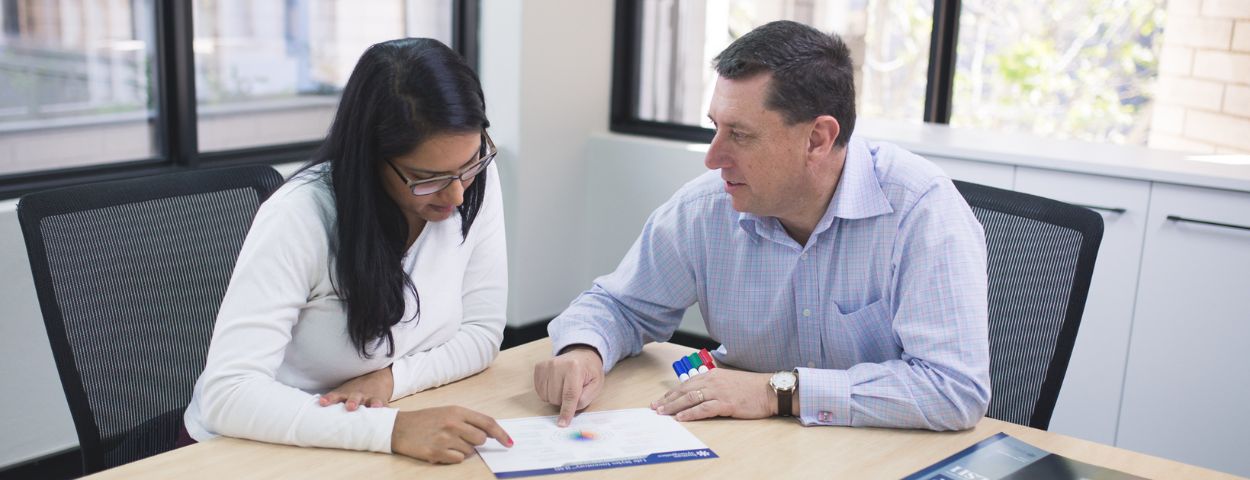We discuss some tips for debriefing the Life Styles Inventory (LSI): Framing it up, finding their Why, Enquiry & Discovery, AAA, and staying constructive yourself. This episode of the podcast is hosted by Liana Sangster and Dominic Gourley.
Below is a brief summary of some of the key points we touched on in this episode’s discussion:
How do I get people to move towards Action?
As coaches, we can feel it is our responsibility to make sure people are reaching some sort of outcome. It makes sense, that’s why we do what we do right? There are things you can do… but people also have to want it for themselves. You can’t make someone have self-awareness, you can’t make someone accept their feedback, you can’t make someone follow up their actions. You can, however, create the best conditions for those things to happen. Below are some tips to keep in mind:
Frame it up:
When conducting an LSI development program it’s important to frame it as exactly that: development. It’s important to frame it up correctly so that people are in the right state of mind to be able to reflect honestly on themselves and strive to grow.
Things go awry then people start thinking of it as an appraisal or judgment. If people think their promotion relies on their ‘LSI score’, they are going to fill it out in a very different way.
If you find yourself in a situation where someone thinks the data might be used for purposes other than development, go back to the core of the LSI: It’s confidential, it’s about them and their development, that you’re there as their coach or confidante, and spend a good amount of time lowering their anxiety and focusing them on this being an opportunity for them to be their best self.
Find Out Their Why:
To get traction with people, we need to understand what’s important to them. Feedback is vital to understand how we show up and how do we impact others and we need to be aware of that… but ultimately for change to happen there has to be a ‘what’s in it for me’ factor. Change is hard, so if people are going to put effort into doing something different then they need to know there is something of value attached to it: more satisfaction, better results, better time with the family, less stress… what is it that people want to really improve?
Enquiry and Discovery:
If you tell people what’s showing up for them, how people are receiving them, what it means for them… then their attachment to that information is low and they might not own it. Enquiry and Discovery is about asking open questions, being curious and non-judgmental, and helping the person you’re coaching to trip over the truth for themselves rather than telling them. When people form their own conclusions they are much more likely to own it and do something about it.
Coaching Through Awareness, Acceptance, Action:
We follow the AAA approach: Awareness, Acceptance, Action. Typically, people need at least a few touch points to absorb the data and the feedback, emotionally process it, and come to some conclusions about how they want to take it forward.
At the first session the expectation should be that you are going to raise some awareness – but people won’t be ready to move to actions. After raising their awareness, let them sit with the data for a while before the next coaching session. That gap gives them time to process the feedback, notice their own thinking and behaviour, and come back to the next session in a better mindset to make rational decisions.
Companies often want to try and compress the process – but it’s better to do things right rather than fast.
How to Stay Constructive Yourself:
Our own styles can come up in sessions: if we’re a bit more on the task side we might be driving too hard for a result and not tracking the energy and the emotion of the client. Remind yourself: what does good look like for the client? What is the outcome that they need? How do I need to be to help get them there?
Thanks to our amazing accredited community – it is only together with your help that we can change the world!
Do you have a question you’d like us to answer? Email podcast@human-synergistics.com.au
